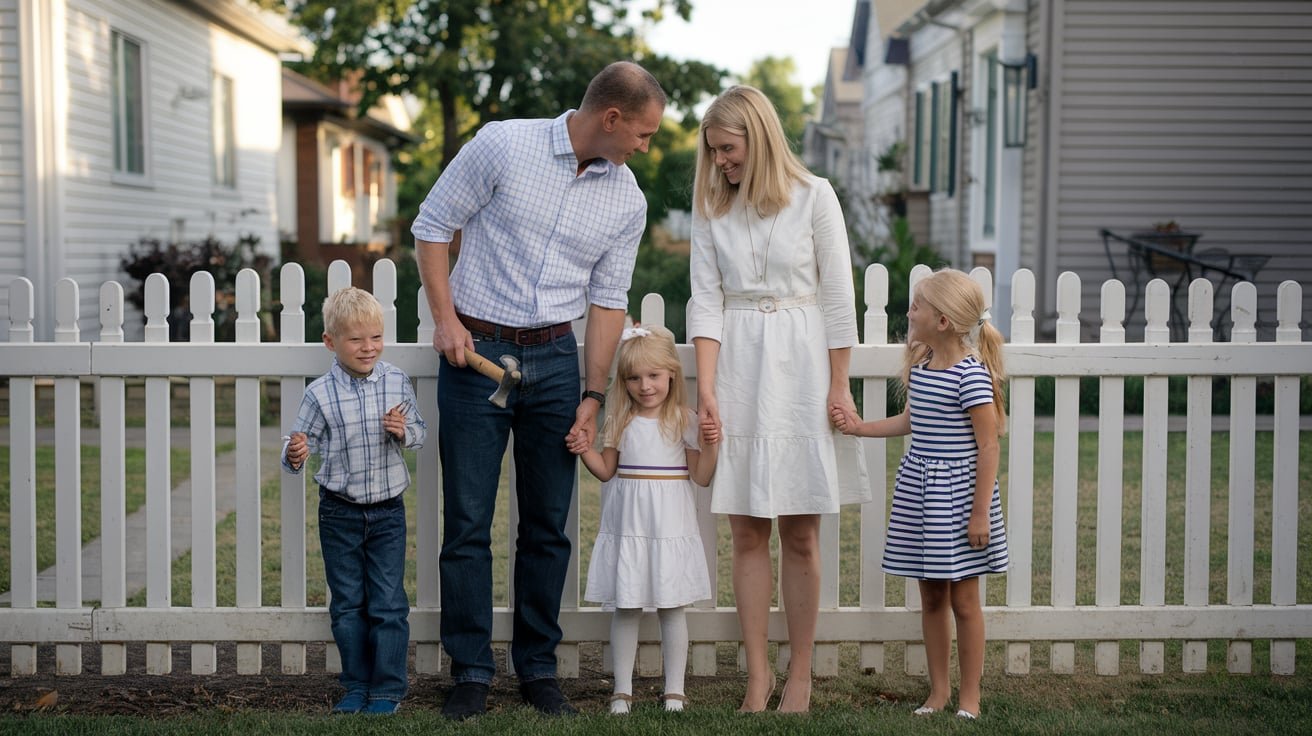TL;DR:
- Traditional American Values: Individual freedom, self-reliance, equality of opportunity, competition, material wealth, hard work.
- Patriotism: Promotes civic participation, unity, and national pride, symbolized by the flag and holidays.
- Family Values: Focus on nuclear families, adaptation to diverse structures including single-parent and blended families.
- Religion: Provides moral guidance, historically influenced by Christianity, impacting ethics and laws.
- Individualism: Encourages personal independence, self-responsibility; supports entrepreneurial spirit and innovation.
- Contemporary Challenges: Immigration, civil rights, and economic policies test the adaptability of traditional values, prompting debates about equity and inclusion.
Are traditional American values becoming a thing of the past, or are they as relevant today as ever? These core ideals—individual freedom, self-reliance, equality of opportunity, competition, material wealth, and hard work—aren’t just abstract concepts but the very fabric of the American Dream. As society shifts and challenges these long-standing principles, understanding them is more important than ever.
This exploration of traditional American values will dive into their definitions, historical significance, and lasting impact. Let’s examine what makes these values foundational to the American identity and why they still matter.
Defining Traditional American Values
Traditional American values form the bedrock of America’s cultural identity. These include individual freedom, self-reliance, equality of opportunity, competition, material wealth, and hard work. Understanding these values is key to grasping the ethos shaping American society over centuries.
Individual freedom is about making personal choices. Self-reliance involves taking responsibility for one’s life without depending on others. Equality of opportunity means everyone should have the same chance to succeed, regardless of their background. Competition drives progress, pushing people to excel. Together, these values create a society that highly prizes personal achievement and innovation.
These values tie closely to the American Dream—the belief that through hard work, anyone can achieve a better life. This dream attracts people worldwide, offering the promise of success and upward mobility. Seeking material wealth is often viewed as a success measure, encouraging hard work and perseverance. Together, these ideals fuel America’s reputation as a land of opportunity.
The Historical Evolution of American Values

Early settlers sought freedom from European restraints, valuing individual freedom and self-reliance. They aimed to escape societal controls, seeking governance by the people. This desire laid the groundwork for self-determination and equality of opportunity as central values as the nation developed.
Historical events have significantly impacted American values. Wars, social movements, and technological advancements reshaped these values to fit new realities. For instance, the Civil Rights Movement expanded the understanding of equality, pushing toward more inclusivity. Each major event left an imprint, nudging society to reassess and redefine core principles.
As the economy evolved from manufacturing to services and information, the American Dream transformed. The shift made upward mobility through factory work challenging, making education and skills essential. Despite changes, hard work and self-reliance remain core, though their application has evolved.
Patriotism and Freedom in American Values
Patriotism embodies national pride and loyalty, arising from shared history and cultural identity. It motivates civic participation, like voting and community service. Patriotism promotes unity and a collective identity beyond differences. Celebrated through symbols like the flag and national holidays, it remains central to American culture.
Freedom in American values encompasses personal and economic liberties, rooted in foundational principles. It includes freedom of speech, allowing expression without fear, and religious freedom, permitting any faith practice or none. Economic freedom offers career and business venture opportunities. These liberties enable personal growth and foster innovation. Freedom, thus, is a right and a responsibility, needing vigilance to maintain and protect.
The Role of Family and Religion in American Values

Traditional American family values emphasize familial bonds and responsibilities. The nuclear family—a couple and their children—has typically been the focus, with assigned roles fostering a sense of belonging and mutual care. This structure encourages cooperation and understanding across generations.
Religious beliefs have shaped American values by providing moral guidance and community cohesion. Christianity, historically significant, guides ethical behavior and societal norms. Religious institutions promote values like charity, honesty, and integrity, informing laws and governance, embedding a moral framework in daily life.
Family and religious values adapted to modern society through diversification and evolving roles. As America becomes more diverse, family structures now include single-parent and blended families. The rise of different faiths and secularism shows acceptance of varied beliefs. While traditional roles evolve, support and moral integrity remain core ideals, guiding amid societal changes.
Individualism and the American Work Ethic
Individualism in American culture emphasizes personal independence and self-reliance. Americans value forging personal paths, making choices free from external control. This trait encourages pursuing personal goals and unique expression. Individualism promotes responsibility for one’s success and failure.
The American work ethic’s historical roots lie in the belief in success through hard work. Early settlers equated labor with virtue and prosperity, using it to build a new life, free from Europe’s class confines. This belief became cultural, with diligence showing character and potential success, further reinforced by the American Dream attracting ambitious immigrants.
These values drive contemporary society’s innovation and productivity. Individualism and a strong work ethic shape behaviors, encouraging risk-taking and competition in a free-market economy. They underpin the entrepreneurial spirit, motivating citizens to seek new opportunities, fostering workplaces where achievement is rewarded.
Contemporary Perceptions and Debates on American Values

Modern challenges test the relevance and adaptability of American values. Issues like immigration, civil rights, and economic policies prompt reconsideration of these values today. As society diversifies, some argue values need evolution for new realities. Immigration debates question inclusivity and equality of opportunity, pushing a reassessment of guiding values.
Differing viewpoints and controversies center on adapting or maintaining values. Some advocate returning to foundational principles like individual freedom and self-reliance. Others call for a progressive interpretation reflecting societal shifts, focusing on equity over equality. These differing views fuel debates, often polarizing opinions on upholding American values.
| Contemporary Issue | Traditional Values Impact |
|---|---|
| Immigration | Challenges equality of opportunity and inclusivity |
| Civil Rights | Expands the interpretation of equality |
| Economic Policies | Tests self-reliance and the role of government |
The ongoing dialogue around these values is active and evolving. Americans continuously debate principles in modern contexts, balancing tradition with progress. Discussions include diverse voices, contributing to vibrant exchanges. This process reflects a dynamic society seeking to uphold identity while adapting to challenges, refining values for national betterment.
Final Words
Traditional American values—freedom, hard work, self-reliance—are deeply woven into the fabric of the nation. While modern challenges may push these values to adapt, their core remains relevant. Whether through patriotism, individualism, or family and religious values, these ideals continue to shape what it means to be American.
The ongoing debates around immigration, civil rights, and economic opportunity reflect a society that is both honoring its past and looking toward the future. As these conversations unfold, they provide a path for balancing tradition with progress, ensuring that American values remain a living part of the national identity.
FAQ
What are traditional American values?
Traditional American values include individual freedom, self-reliance, equality of opportunity, competition, material wealth, and hard work.
How do equality and democracy reflect traditional American values?
Equality ensures everyone has a fair chance, while democracy gives people a voice in governance, both central to American ideals.
What is individualism?
Individualism is the belief in personal independence and responsibility for one’s own success or failure.
How has the American Dream evolved?
Initially focused on land ownership and hard labor, the American Dream now emphasizes education and skills in a service-based economy.
Why is patriotism important?
Patriotism promotes unity, pride, and civic participation, encouraging citizens to contribute to their community and country.

